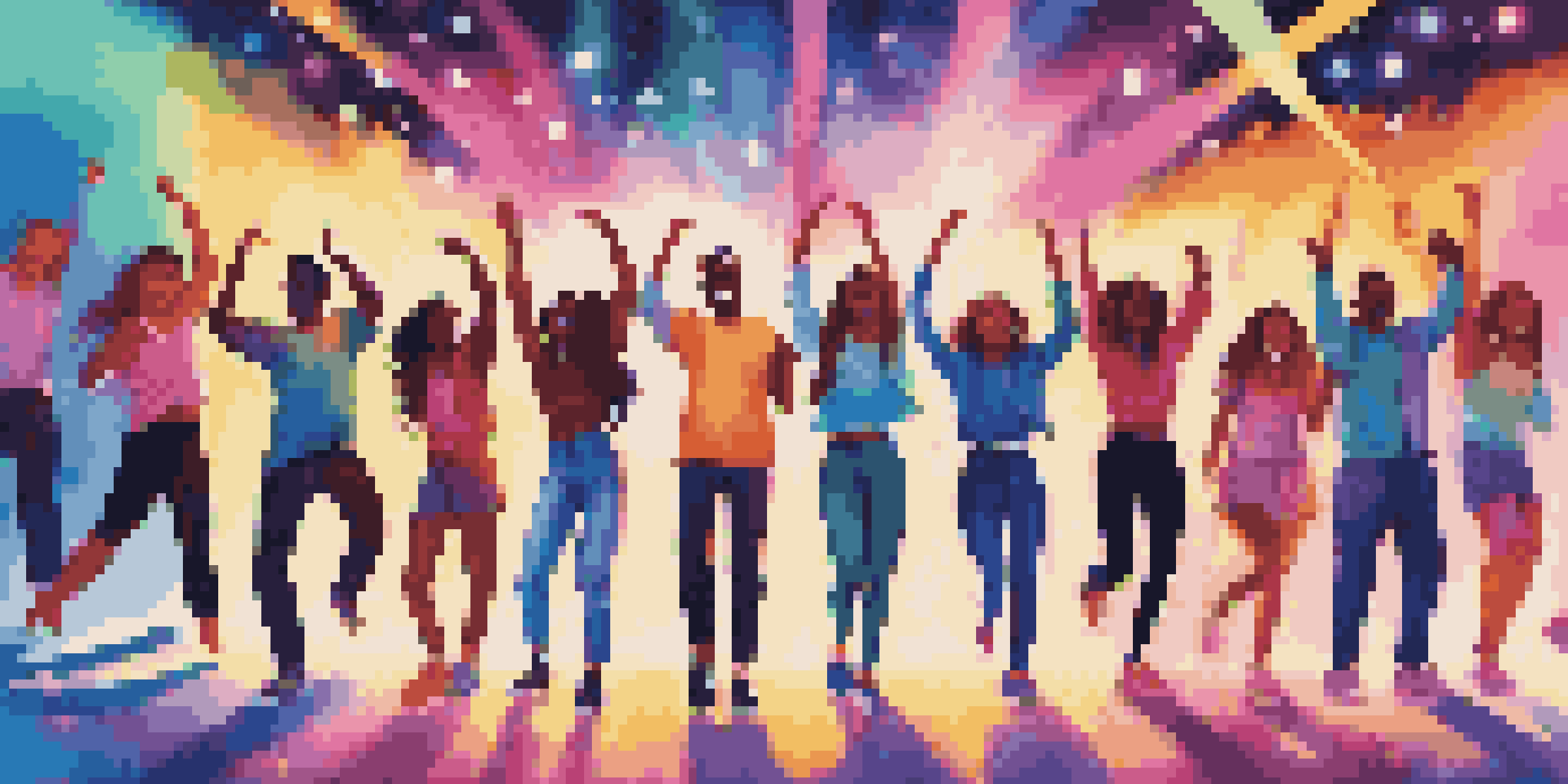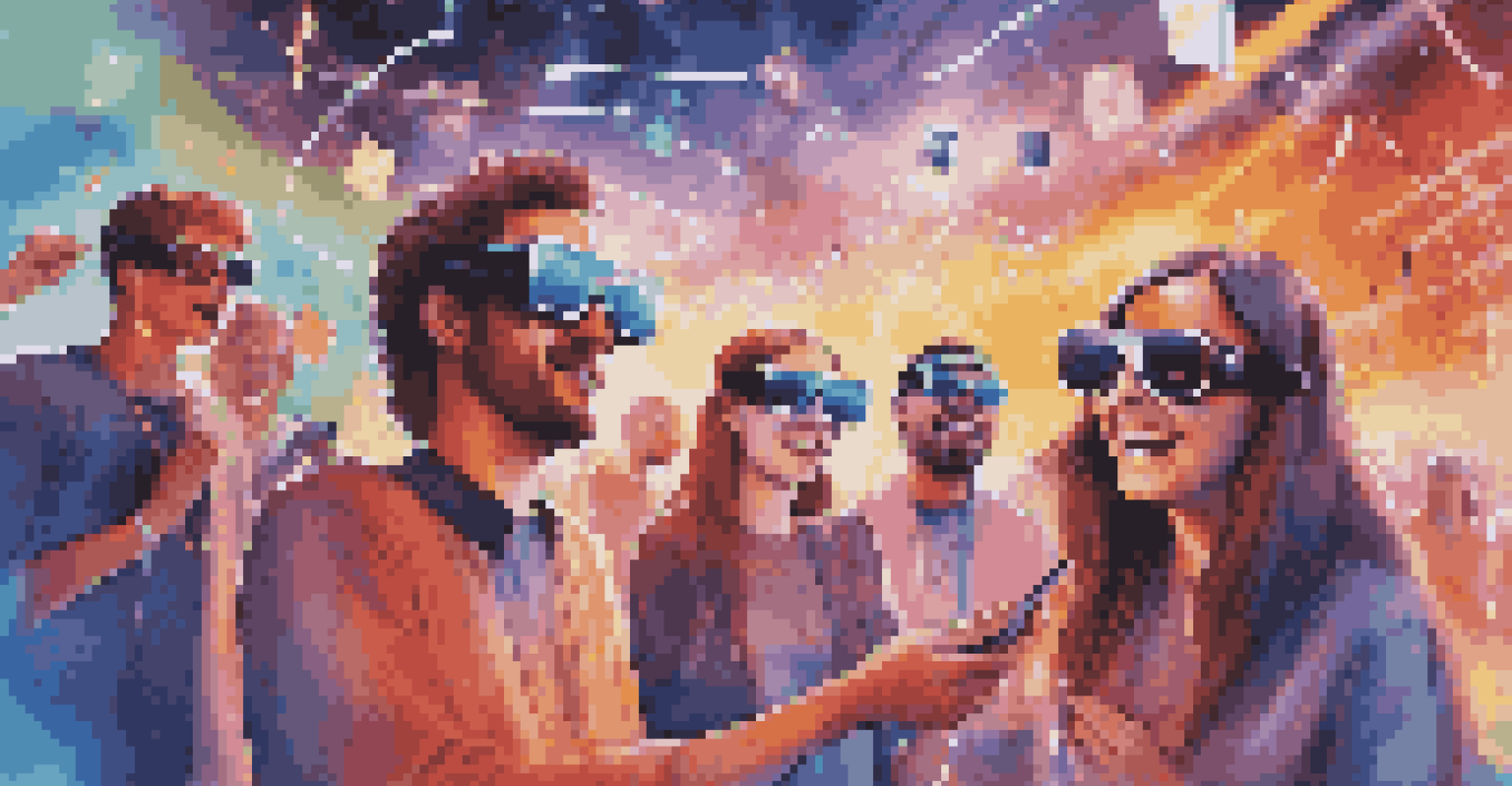User-Generated Content: A New Era for Music Promotion

Understanding User-Generated Content in Music
User-generated content (UGC) refers to any content created by fans, including videos, reviews, and social media posts. In the music industry, UGC has become a powerful tool for promotion, leveraging the voices of fans to reach wider audiences. This shift allows artists to connect with listeners on a more personal level, fostering a sense of community around their music.
User-generated content is the ultimate expression of engagement—it's not just about what you create, but how your audience connects with it.
For example, think of TikTok challenges where users create dance routines to popular songs. These organic interactions not only promote the music but also create viral moments that traditional marketing often struggles to achieve. As a result, UGC plays a crucial role in how music is discovered and consumed today.
Moreover, UGC helps artists cultivate authenticity. When fans share their experiences or interpretations of a song, it adds layers of meaning and encourages others to engage. This genuine connection can significantly enhance an artist's reach and impact in a crowded digital landscape.
The Benefits of UGC for Music Artists
One of the most significant advantages of UGC is its cost-effectiveness. Artists, especially independent ones, often operate on tight budgets, and relying on fans to promote their music can save money while maximizing exposure. Instead of spending heavily on advertisements, artists can encourage their fanbase to generate buzz organically.

Additionally, UGC fosters stronger fan loyalty. When fans feel they are part of the creative process, they are more likely to support the artist through merchandise purchases, concert attendance, and sharing content. This sense of ownership creates a community that can be invaluable for an artist's long-term success.
Finally, UGC serves as a rich source of feedback. Artists can gain insights into how their music resonates with audiences, allowing them to tailor future projects accordingly. By listening to their fans, artists can evolve and maintain relevance in a constantly changing industry.
Platforms Driving UGC in Music Promotion
Various social media platforms have become breeding grounds for user-generated content, particularly in the music realm. TikTok, Instagram, and YouTube are at the forefront of this movement, each offering unique features that empower fans to create and share. For instance, TikTok's short video format encourages creativity and spontaneity, making it ideal for music challenges.
The power of music lies in its ability to create community, and user-generated content is the bridge that connects artists and fans.
On Instagram, artists can utilize Stories and Reels to repost fan content, further amplifying their reach. This interaction not only showcases fan appreciation but also encourages others to participate, creating a snowball effect of engagement. YouTube, on the other hand, allows fans to create covers and remixes, showcasing their talent while promoting the original artist's work.
The diversity of these platforms means that artists can tailor their UGC strategies based on their target audience. Knowing where their listeners are most active helps artists craft content that resonates, ultimately driving more engagement and streams.
How to Encourage UGC Among Fans
To effectively harness UGC, artists must actively encourage their fans to participate. This can be achieved through contests, challenges, or simply asking fans to share their experiences with a specific song. Providing clear guidelines and incentives, such as giveaways or shoutouts, can significantly boost participation rates.
For example, an artist might launch a challenge on TikTok where fans create videos dancing to their latest single. By promoting this challenge across various platforms, the artist can stimulate interest and engagement, leading to a wave of user-generated content that promotes the song exponentially.
It's also essential for artists to acknowledge and celebrate fan contributions. Sharing user-generated content on their profiles not only shows appreciation but also motivates other fans to participate. This feedback loop strengthens the community and enhances the artist's presence online.
Navigating Challenges of UGC in Music Promotion
While UGC offers many benefits, it’s not without challenges. Managing and moderating content created by fans can be time-consuming and sometimes overwhelming for artists. There’s also the risk of negative or inappropriate content being associated with their brand, which could harm their reputation.
Artists need to establish clear guidelines for UGC to mitigate these risks. By setting expectations on what type of content is acceptable, artists can protect their image while still encouraging creativity. This balance is crucial to maintaining a positive relationship with fans.
Moreover, artists should be prepared for the unpredictable nature of UGC. Viral moments can be fleeting, and not all content will align with an artist's vision. However, embracing this unpredictability can lead to unexpected opportunities and connections with new audiences.
Measuring the Impact of UGC on Music Promotion
As with any marketing strategy, measuring the effectiveness of UGC is vital. Artists can track engagement metrics, such as likes, shares, and comments, to gauge how their audience is responding. Additionally, monitoring streaming numbers and social media growth can provide insights into the impact of UGC on their overall reach.
Tools like Google Analytics and social media insights can help artists understand where their traffic is coming from and which content resonates most. This data can inform future UGC campaigns, allowing artists to refine their strategies based on what works best.
Ultimately, the goal is to create a cycle where UGC not only promotes music but also enriches the artist-fan relationship. By continuously measuring and adjusting their approach, artists can maximize the benefits of user-generated content.
Future Trends in UGC for Music Promotion
As we look to the future, the role of user-generated content in music promotion is expected to grow even more significant. Emerging technologies like augmented reality (AR) and virtual reality (VR) may offer new and immersive ways for fans to engage with music. Imagine fans creating AR experiences based on their favorite songs, further blurring the lines between artist and audience.
Additionally, as platforms evolve, so too will the ways in which fans interact with music. New social media channels may emerge, each with unique features that could shape how UGC is created and shared. Staying ahead of these trends will be crucial for artists looking to maintain their relevance.

Ultimately, embracing user-generated content is about adapting to a changing landscape. As fans continue to play an active role in music promotion, artists who harness this energy will likely find greater success in connecting with their audiences.